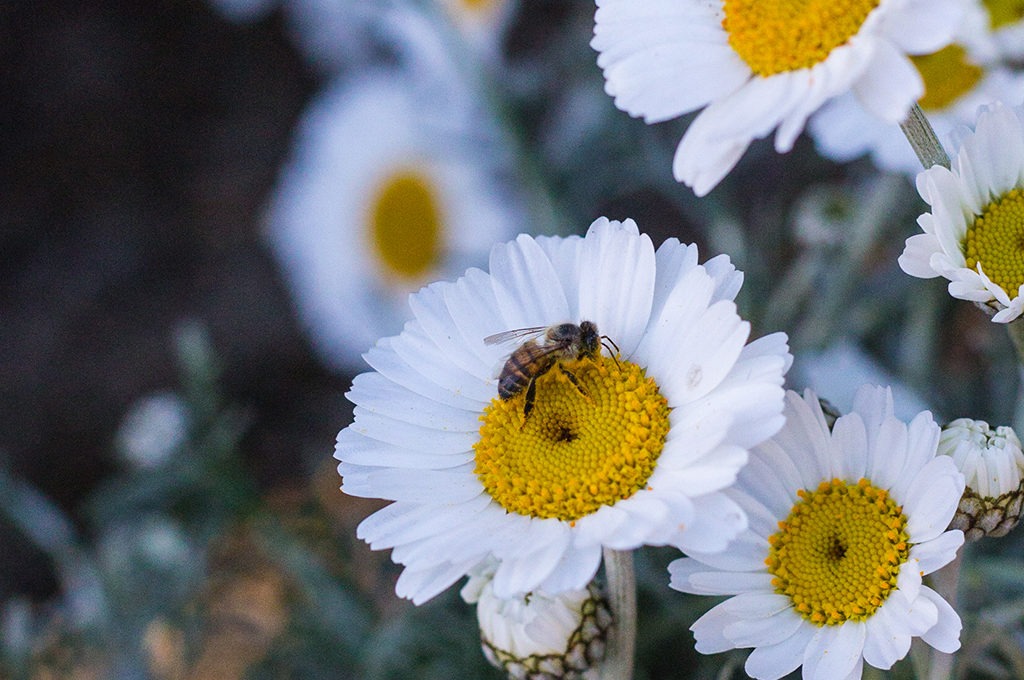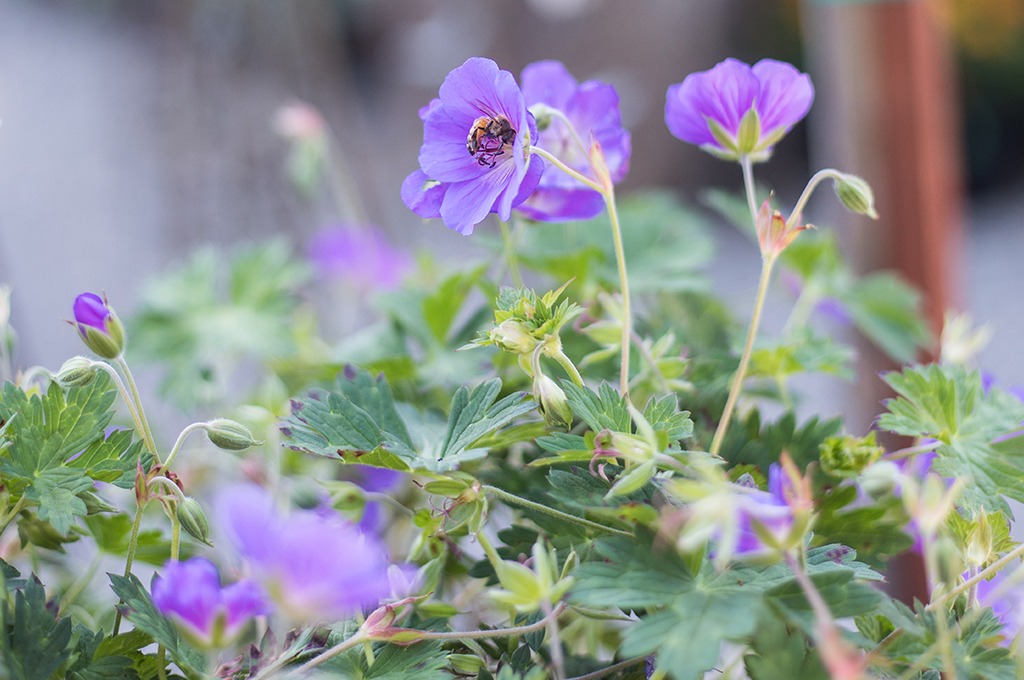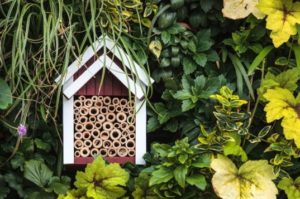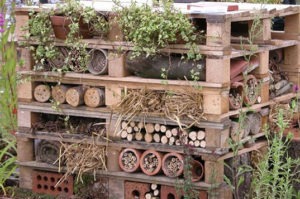Bees are our spark plugs to agriculture. Plain and simple, they are pollinators that help fertilize our plants so that they can then produce and grow. Therefore, bees play an enormous role in the food that we eat. And I don’t know about you… but I love food.
Here are five simple ways we can help protect, love and thank them.

Plant things in and around your garden that bees love.
Here’s a list… just to name a few.
- Sage
- Salvia
- Oregano
- Lavender
- Ironweed
- Yarrow
- Yellow hyssop
- Alfalfa
- Honeywort
- Dragonhead
- Echinacea
Provide a bee habitat
Just like humans, they need a secure place to live and thrive and go back to and rest after their long day pollinating! Purchase or make your own beneficial bug hotel. Unlike honeybees, natural bees make use of many kinds of shelter. You only need a few materials, a little time and those bees will be on their marry way.
Eliminate garden pesticides
Pesticides are bad for humans and they’re worse for bees. Our pollinators need clean food. Investigate an organic and natural means of pest control. I love Neem oil and Dr. Earth products. These organic pest controls should be sprayed in the late afternoon after the bees have gone home and the sunlight is not as intense.
Let your veggies go to seed after harvest
Seeding plants are a bee’s best chance to stock up on food before the colder months. So, yes – be lazy and don’t pull your vegetables when they are done. They will continue to grow and produce tiny beautiful flowers and the bees will seek them out.
Support your local beekeepers
Beekeeping as a hobby has declined in recent years. Seek out your local Beekeepers and buy their honey. And the next time you have a beehive in your garden, call them! If the Beekeeper’s beehives are over 3 miles away from yours, chances are they can easily relocate it.






Leave A Comment